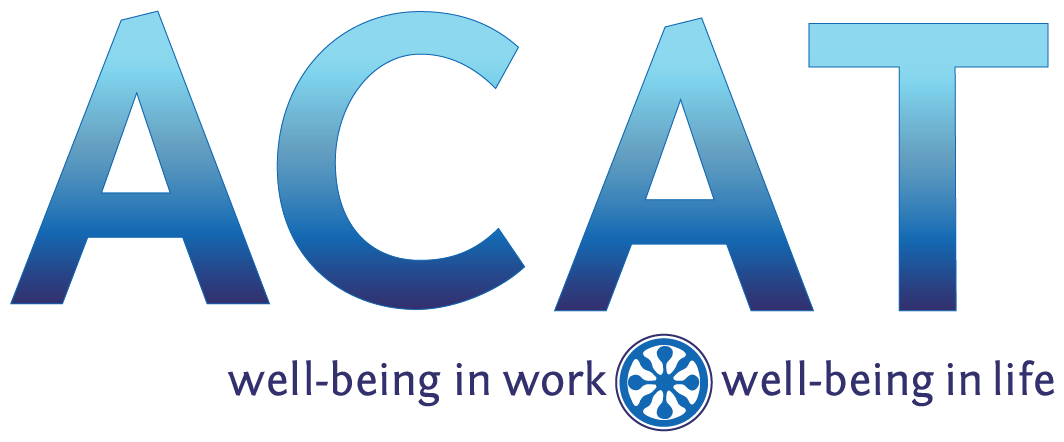[Jean McClelland is teaching a free workshop for ACAT members—"The Flow of Voice, Breath and Body"—on Monday, January 26th, from 7:00pm to 9:00pm. To confirm your space in the class, email the ACAT office.]
Q. How long have you been teaching?
A. I was certified by AmSAT and ACAT in 1991, although I have been teaching singing since the late 1970s.
Q. How were you first introduced to the AT?
A. I was introduced to the Technique through a friend of mine at the Longy School of Music in Cambridge, where I went in 1972 (after college) to study with the extraordinary singer, artist, and teacher, Olga Averino. My friend Susan had been studying voice since high school but had developed enormous vocal tensions. Susan's teacher at Longy (not Olga) had lived for some years in South Africa and was acquainted with the Technique and felt that Susan would benefit from lessons. There were very few AT teachers in the area at the time, but Susan started lessons with Joe Armstrong. Susan would share with me her experiences in her lessons, and she encouraged me to study with Joe by saying that she thought I would like the AT because it was "very intellectual!" Without knowing a whit about what the Technique was about, I went off for Alexander lessons. Everything in my life changed. I remember so clearly my first lesson, looking at Joe and thinking that he was standing in a very odd fashion. He clearly had a "torso back and up off the legs,"which is what we see in great athletes and musicians, but it was foreign to my eyes and foreign to my body. It was however exactly what Olga meant when she said that a singer must, "stand like a baseball player." At that time, I had little understanding of how to use my body. Indeed, the comment after my first jury in conservatory was, "Musically very intelligent but needs to develop the physical requirements necessary for solo singing."
Q. What made you decide to become a teacher of this work?
A. About six months after I started lessons with Joe Armstrong, my posture changed quite significantly, and about a year after that, I had an experience that was quite revelatory. I was in conversation with someone, and for the first time in my life, I was totally present and spontaneous. I think that experience made me understand the profound nature of the Alexander Technique, even though I was light years away from understanding it. Those early years of study were so transformative to every aspect of my life that it seemed natural to want to share this work with others. I have always loved teaching, and once I started doing more and more voice teaching, it became apparent to me that including Alexander as part of voice study would be ideal. In the late 80s, I began to shift my performing away from musical theater to more concert work, and it became easier for me to commit to the three-year training. I entered ACAT in the spring of 1988.
Q. What most excites you about your upcoming workshop at ACAT?
A. The art of using one's voice in singing and acting can often seem quite mysterious. In her autobiography, "The Inner Voice: the Making of a Singer," the opera singer Renée Fleming asks: "How can I describe a process to you that is mostly unconscious?" And Olga Averino in her book, "Art and Principles of Singing," writes that "the process of good singing is a process of physical and psychological coordination. Physical coordination depends on the alignment of the singer's instrument. In itself, it produces no sound, but it creates the conditions which allow the imagination to produce the sound." As Alexander teachers we guide our singing and acting students to an improved use of their bodies and their coordination, but we must also be able to help them free their imaginations and encourage them to have a curious and improvisational mind. Only then will they truly sing or act freely and expressively.
My main goal for this workshop is for participants to explore how to use their imaginations to stimulate breath and voice, and to understand and how to creatively work with many of the vocal concepts that abound in voice lessons, such as: vocal support; open throat; breath movement; diaphragmatic breathing; grounding; embodied voice, intention, etc.
Q. What is your favorite way to engage with the AT in your daily life right now?
A. It's simply a way of being present in the world, isn't it?
[author] [author_info]JEAN MCCLELLAND received her B.A. from Vassar College, did graduate study at Boston University in opera, and has studied extensively at the Carl Stough Institute, Psychosynthesis Institute of New York, and the Michael Chekhov Studio. As a performer she has appeared in the Broadway production of "Camelot" and has played leading roles in numerous musicals and operas. Jean also performs in concert with her husband, Bill McCelland. Jean is on the faculty of the New York Open Center and has given workshops at New York University, Vassar College, Rutgers University, William Paterson University, Stevens Institute and the Rowe Conference Center. www.jeanmcclellandvoice.com [/author_info] [/author]

